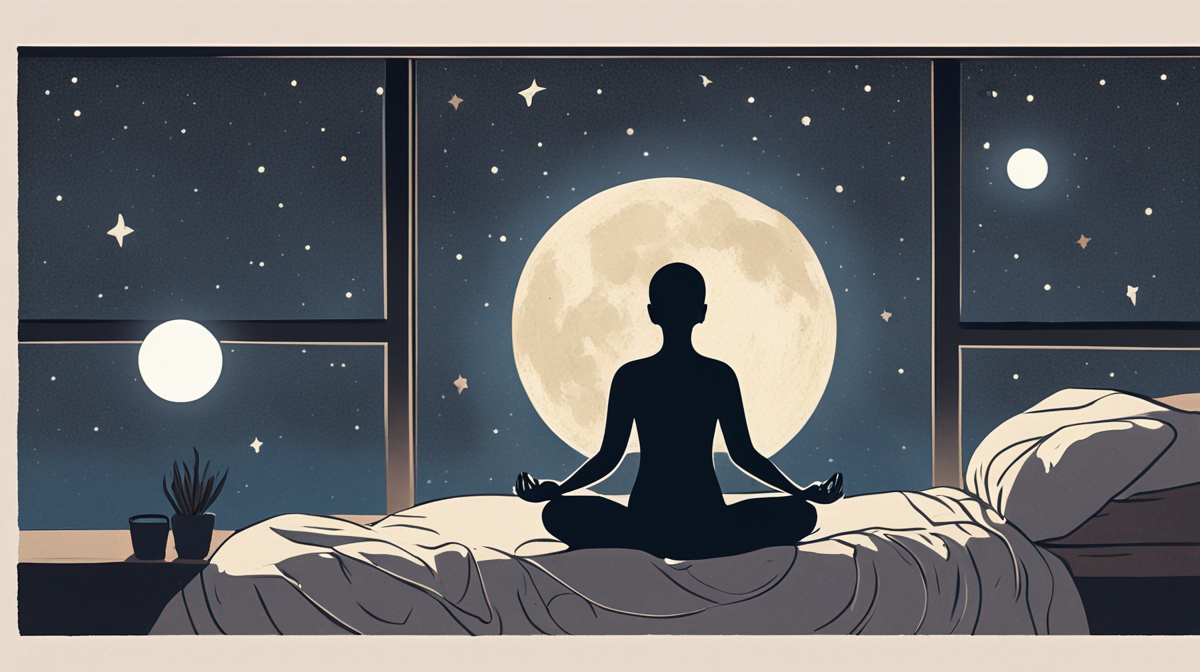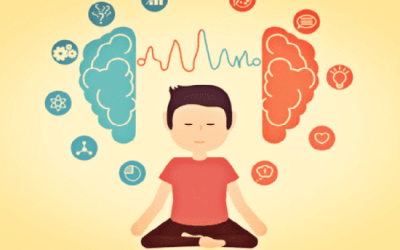Discover mindfulness techniques to improve sleep quality. Explore mindful practices that promote relaxation, reduce insomnia, and enhance overall sleep hygiene.
Table of Contents
Mindfulness for Better Sleep: Techniques and Tips
In our fast-paced world, getting a good night’s sleep can feel like a luxury. Between work deadlines, social obligations, and the constant blue light of our devices, it’s no wonder many of us struggle to quiet our minds and drift off to sleep. But what if there was a simple, natural way to improve your sleep quality?
Enter mindfulness. Mindfulness is the practice of paying attention to the present moment without judgment. It’s about being aware of your thoughts, feelings, and bodily sensations without getting caught up in them. And when it comes to sleep, mindfulness can be a powerful tool.
How Mindfulness Can Help You Sleep Better
Here are just a few of the ways mindfulness can improve your sleep:
- Reduces stress and anxiety: Stress is a major sleep disruptor. Mindfulness can help you manage stress by calming your nervous system and promoting relaxation.
- Quiets racing thoughts: When our minds are racing, it can be difficult to fall asleep. Mindfulness can help you focus your attention on the present moment and let go of distracting thoughts.
- Improves sleep quality: Studies have shown that mindfulness can help you fall asleep faster, sleep more soundly, and wake up feeling more refreshed.
Mindfulness Techniques for Better Sleep
There are many different mindfulness techniques you can try to improve your sleep. Here are a few of the most popular:
- Meditation: Meditation is a great way to train your mind to be present and aware. There are many different types of meditation, so you can find one that works for you. Some popular options for sleep include guided meditations specifically for sleep, body scan meditations, and breath awareness meditations.
- Deep breathing: Deep, slow breaths can help to activate your parasympathetic nervous system, which is responsible for relaxation. Try taking a few slow, deep breaths before bed, focusing on the rise and fall of your chest.
- Progressive muscle relaxation: This technique involves tensing and relaxing different muscle groups in your body. This can help to release tension and promote relaxation.
- Body scan: In a body scan, you pay attention to the sensations in your body, one part at a time. This can help to bring your awareness to the present moment and quiet your mind.
Tips for Incorporating Mindfulness into Your Bedtime Routine
Here are a few tips for incorporating mindfulness into your bedtime routine:
- Create a relaxing bedtime ritual: This could include taking a warm bath, reading a book, or listening to calming music.
- Set aside some time for mindfulness before bed: Even just 10-15 minutes of meditation can make a big difference.
- Make your bedroom a sleep sanctuary: Create a dark, quiet, and cool environment that is conducive to sleep.
- Avoid screens before bed: The blue light emitted from screens can interfere with sleep. Try to avoid using electronic devices for at least an hour before bed.
- Be patient: It takes time to develop a mindfulness practice. Don’t get discouraged if you don’t see results immediately. Just keep practicing and be patient with yourself.
Mindfulness is a powerful tool that can help you improve your sleep quality and overall well-being. By incorporating mindfulness into your bedtime routine, you can create a more peaceful and restful sleep experience.
I hope these tips help you get a better night’s sleep!
Additional Resources
- Mindful.org: https://www.mindful.org/
- Headspace: https://www.headspace.com/
- Calm: https://www.calm.com/
- Insight Timer: https://insighttimer.com/
Sweet dreams!






